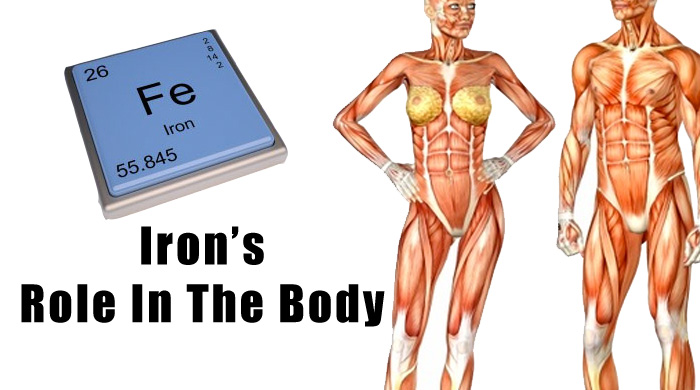Iron’s Role In The Body And Its Benefits
Iron Is Vital For Several Processes In The Body

Iron is required for the production of red blood cells and is also part of hemoglobin, a protein in blood cells. Oxygen we breathe into the lungs binds to the iron in red blood cells, and is carried to the organs in the body. Once the oxygen is delivered, the iron in the cells then bind to the carbon dioxide produced in the body and transports the carbon dioxide to the lungs where it is exhaled from the body. Plant life then uses the carbon dioxide and returns oxygen back to the environment and continues the cycle.
Iron is also needed for the proper functioning of the myoglobin protein found in heart and skeletal muscles. The oxygen in the myoglobin protein also binds to oxygen, supplying oxygen to the muscles.
Iron and Enzyme Functioning
Iron is needed for proper functioning of many enzymes, including enzymes involved in the production of energy. Enzymes are biological catalysts, mainly proteins, generated by the body to speed up chemical reactions.
Role Of Iron In Immunity
Definitive cause and effect between iron and immunity hasn’t been established, but there is an association between iron deficiency and impaired immunity. Iron deficiency may contribute to impaired T-cell functioning, which are the antigen-killing properties of the immune system.
Iron Deficiency
Iron deficiency results from either not getting enough iron from the foods we eat, from excessive blood loss, or the inability to absorb iron properly. Iron deficiency can cause iron deficiency anemia, where the body produces less red blood cells. Iron deficiency anemia leads microcytic anemia, where the body produces smaller red blood cells. Symptoms of iron deficiency anemia can include:
- Fatigue
- Dizziness
- Hair loss
- Irritability
- Paleness
- Weakness
- Brittle or grooved nails
- Impaired immune function
- Restless legs syndrome
Vegetable non-heme iron sources:
References:
Medline Plus
Tags: immune system, iron, iron deficiency






